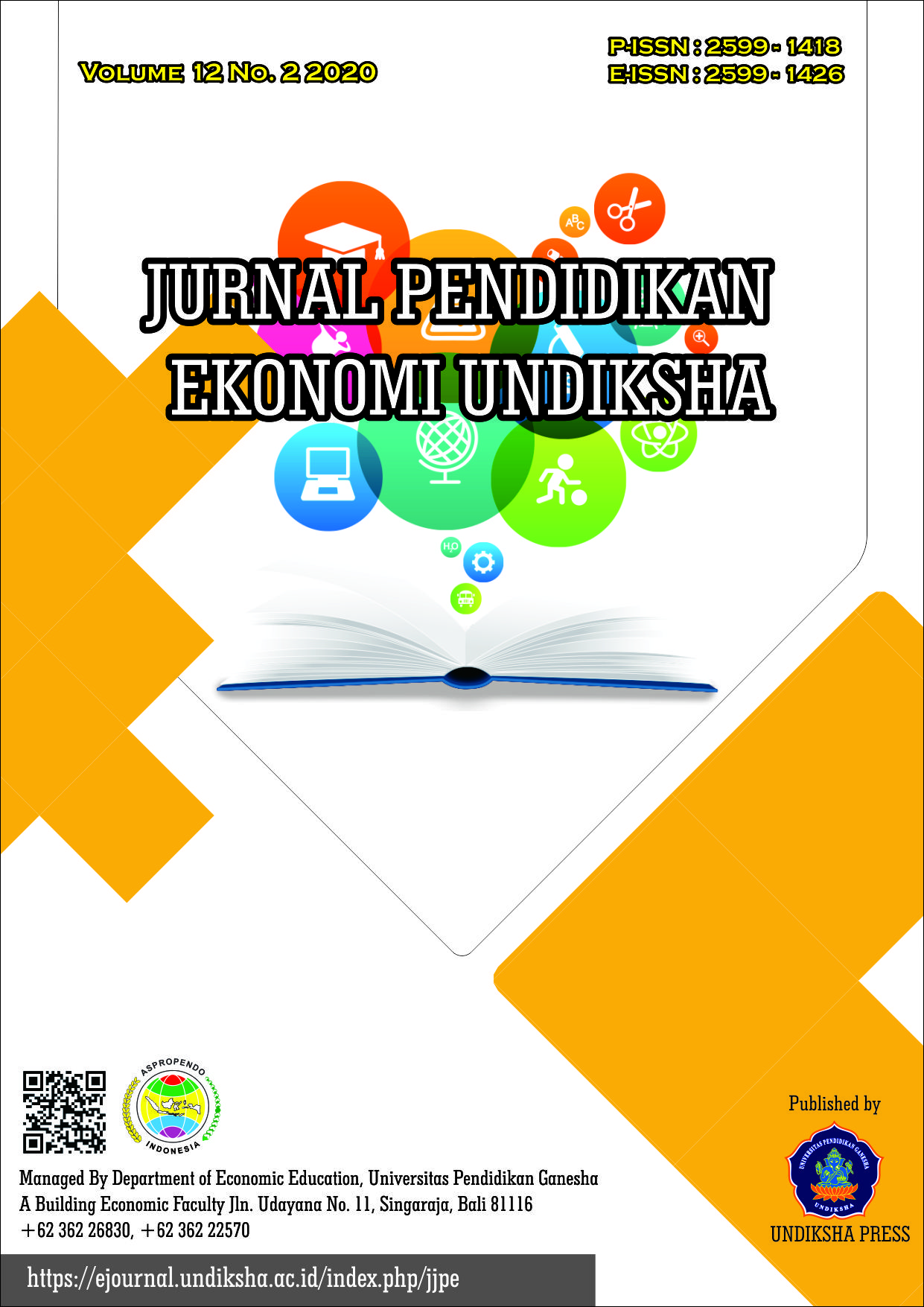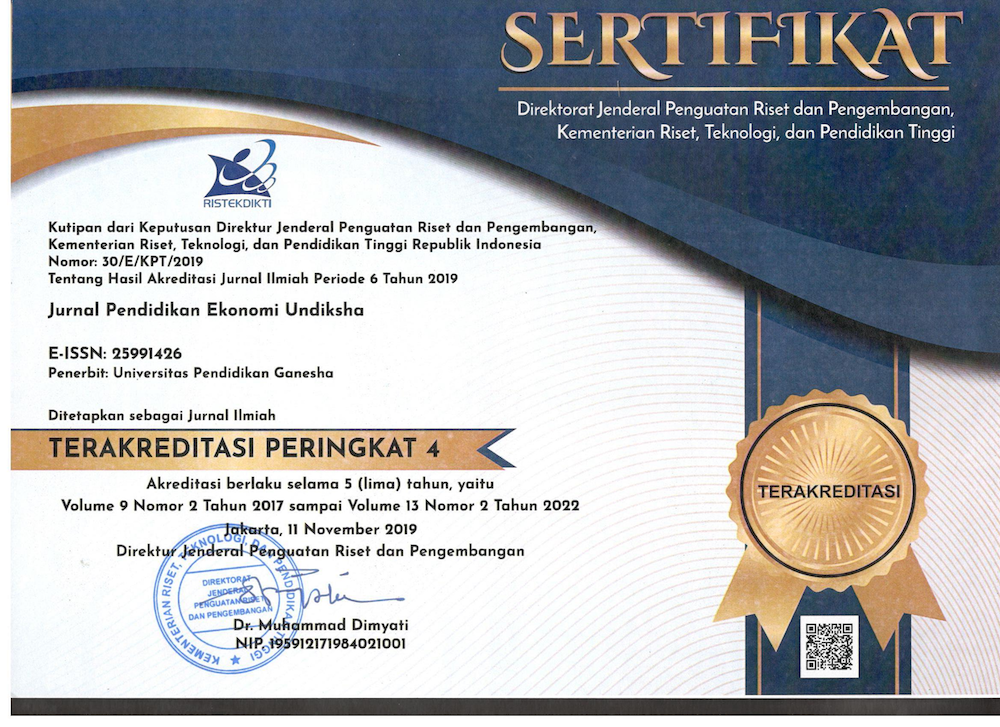Pengembangan Buku Ajar Ekonomi Internasional sebagai Refleksi Perekonomian Global
DOI:
https://doi.org/10.23887/jjpe.v12i2.29333Keywords:
international economics, textbookAbstract
The focus of developing this international economics textbook is to reflect on the global economy. The assessment of global economic conditions is an achievement of international economic learning. The learning process will be directed at the student's ability to think critically and systematically to achieve learning goals. International economics books have several advantages including 1) This book is in accordance with the economic education study program curriculum, 2) This book is presented contextually so that it can reflect the international economic system in accordance with existing developments. The purpose of this research and development is a reflection of the global economy on national economic conditions. By using the Research and Development (R&D) method, researchers can develop this book according to existing needs. This book has 5 chapters of discussion. The results of the implementation of the application of the international economics book obtained a "very good" score.References
Bank Indonesia (BI). 2020. Perkembangan Ekonomi Keuangan dan Kerja Sama Internasional (PEKKI) Edisi III 2020.
https://www.bi.go.id/id/publikasi/ekonomi-keuangan-kerjasama-internasional/Pages/Pekki-III-2020.aspx
Boediono. 2016. Ekonomi Internasional. Bandung: Mizan.
Bong, A., & Premaratne, G. (2018). Regional integration and economic growth in Southeast Asia. Global Business Review, 19(6), 1403-1415.
Dominick Salvatore, Ekonomi Internasional, Salemba Empat, Jakarta 2014.
Ernita, D., Amar, S., & Syofyan, E. (2013). Analisis pertumbuhan ekonomi, investasi, dan konsumsi di Indonesia. Jurnal Kajian Ekonomi, 1(2).
Jonnadi, A., Amar, S., & Aimon, H. (2012). Analisis pertumbuhan ekonomi dan kemiskinan di indonesia. Jurnal Kajian Ekonomi, 1(1).
Manddaremmeng A. 2017. Transformasi Perekonomian Indonesia. Jakarta: Yayasan Pustaka Obor.
Michálek, A., & Výbošťok, J. (2019). Economic growth, inequality and poverty in the EU. Social Indicators Research, 141(2), 611-630.
Neuts, B. (2020). Tourism and urban economic growth: A panel analysis of German cities. Tourism Economics, 26(3), 519-527.
Qin, Y., Luo, Y., Zhao, Y., & Zhang, J. (2018). Research on relationship between tourism income and economic growth based on meta-analysis. Applied Mathematics and Nonlinear Sciences, 3(1), 105-114.
Siregar, H., & Wahyuniarti, D. (2007). Dampak pertumbuhan ekonomi terhadap penurunan jumlah penduduk miskin. Jurnal Institut Pertanian Bogor.
Soesastro, H., & Indonesia, I. S. E. (2005). Pemikiran dan permasalahan ekonomi di Indonesia dalam setengah abad terakhir: 1966-1982. paruh pertama ekonomi Orde Baru (Vol. 3). Kanisius.
Statistik, B. P. (2014). Pertumbuhan Ekonomi Internasional. Berita resmi statistik, 17(16/02), 1-9.
Statistik, B. P. (2019). Pertumbuhan Ekonomi Kwartal II 2019 Berita resmi statistik,17(16/02), 1-9.





